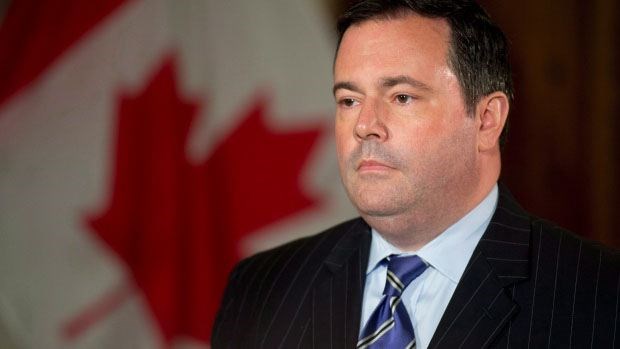Equipping northern B.C.'s aboriginal communities with the ability to participate in incoming trades jobs will go a long way towards closing the skills gap, said the federal employment minister.
Like other parts of the country, a skilled labour shortage is the region's biggest economic challenge, said Jason Kenney, while sitting down with The Citizen as he wrapped up a tour of northern B.C. in Prince George on Tuesday.
After a luncheon and visit with the Immigrant and Multicultural Services Society, Kenney met with the Prince George Nechako Aboriginal Employment and Training Association.
"And it just so happens that many of these things here - if they happen to be mines or pipelines, energy infrastructure - many of these projects are happening in areas with large and hugely unemployed aboriginal populations," he said. "We think that one of the most important challenges the country is facing is how we move many unemployed and underemployed aboriginal Canadians into the opportunities that are being created in much of northern Canada."
With baby boomers retiring, a slowing birth rate and multiple resource projects revving up, the demand for people will only increase, said the employment and social development minister.
The provincial government has identified the potential for more than 18,000 skilled jobs left unfilled by 2020.
Filling the skills gap isn't something the country can afford to get wrong, he added.
"And the first and most important part of the solution has to be aboriginal Canadians," Kenney said. "It is outrageous that we have aboriginal communities with 80 per cent unemployment right next to resource developments that are telling us they have to bring in foreign workers."
During his tour - which included stops in Prince Rupert, Terrace, Kitimat, and will continue to the Yukon and Northwest Territories - Kenney said what he heard during a roundtable discussion was concern over employers looking abroad before looking to the aboriginal community.
"You know what, I think employers are getting with the program," said Kenney. "I think they understand that it doesn't make economic sense for them to not have a good, reliable, well-trained local workforce. It makes broader sense because they should want the aboriginal communities to have a stake in all of these developments."
And while the conversation needs to begin with a focus on aboriginal communities, Kenney said he wants to get as many players to the table as possible.
He hosted a meeting pulling together the federal, provincial, territorial ministers responsible for labour markets - including local MLA Shirley Bond - last November.
"We worked out a very ambitious agenda," said Kenney, noting it was one ran the gamut from trades training to apprenticeship harmonization to reinvention of the vocational high school system.
A chief issue that still needs to be worked out between the federal government and the provinces is the delivery of the Canada Job Grant.
The grant would see employers nominating individuals for training, with the guarantee of a job when completed. The government and the employer would both contribute to the training costs.
"It would increase, we believe, the private sector investment in skills development," said Kenney. "It would increase the number of people who are trained to actually get real jobs and are not just trained for abstract, potential jobs."
The program is slated to begin April 1, whether or not a deal is reached to deliver it with the provinces.
"I've been showing the provinces, I think, a lot of flexibility in how they can design and deliver this program and we're going to make one last effort in the next week or so to reach an agreement," Kenney said. "If, at the end of the day, provinces choose not to participate in the program that's not the end of the world. We are prepared to deliver that job grant directly through Service Canada."
Kenney said his government's preference is for a provincial delivery system, "but if they choose not to participate, these are federal dollars and we would be prepared to deliver them directly to Canadians who need training."



